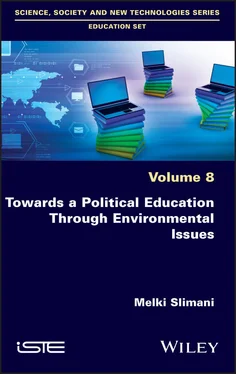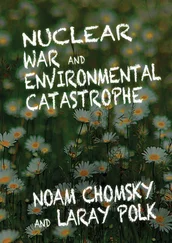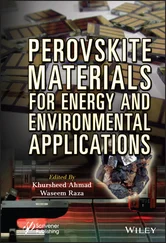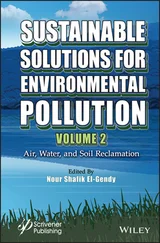1.3.2.2. A risk of political impoverishment
According to Kopnina (2012), the ethical discussion in environmental and sustainable development education programs has not escaped dominant political ideologies such as neoliberalism. These ideologies have played inhibiting roles in democratic deliberation to create a situational or contextual hierarchy of environmental values. They impose a communicative deliberation that is detrimental to pluralist ethical problematization in favor of an anthropocentric ethical approach at the expense of ecocentric or biocentric values. The sources of this depoliticization of the environmental ethical question are identified by Sauvé (2011), at the educational level, in an economic globalization program claiming a focal role for economic growth in resolving environmental and social problems. In this program, education is considered as “an engine of globalization” responding primarily to a mission of economic development through the development of human resources or human capital.
1.3.3. Sustainable development issues
The prospect of sustainable development suggests the need to integrate environmental and equity issues with economic growth so as to preserve what is at stake with sustainable development. Hopwood et al . (2005) proposed an analytical framework for the different political positions taking place in debates on sustainable development. To do so, the authors used two analytical variables: justice on the one hand and environmental values on the other. They distinguish between two opposing approaches or points of view: the status quo and the transformative viewpoint and another intermediary, which is the reformist approach.
According to Hopwood et al . (2005), the status quo perspective assumes that sustainable development requires adjustments that do not require a genuine change to means of decision-making or power relations. Generally, positions that support this view (ecological modernization, green consumption, green economy, natural resource management, etc.) advocate the primordial role of the market in sustainable development. This is “green” capitalism practicing corporate citizenship.
The transformist viewpoint corresponds to a heterogeneous set of trends (social ecology, ecofeminism, ecosocialism, etc.) but share the same point of view, which assumes that environmental and social crises are interconnected and that social and environmental systems risk collapse crises in the absence of radical change (Hopwood et al . 2005).
Social ecology presupposes a dialectical relationship between humanity and nature. This leads to considering that environmental concerns must be rooted in social criticism by aiming to achieve radical social reconstruction.
Ecofeminism advances the relationship between environmental degradation and the subordination of women. This trend runs parallel to ecosocialism by assuming that capitalism attempts to detach social life from nature through its class and gender-dividing politics.
Based on the writings of Marx and Engels, ecosocialism establishes a link between environmental damage and capitalism‘s exploitation of people and the environment. Ecosocialists argue that changes in the material conditions and social structure of society are necessary to overcome both environmental crises and injustice.
The reformist point of view is supported by several government agencies and non-governmental organizations such as Greenpeace and Friends of the Earth. Reformers identify a key role for governments in sustainable development’s assumption that reform of the political system, as an anchor for democracy and participation, plays a role in sustainable development (Hopwood et al . 2005).
This point of view is based on the observation that inequalities in development, which are a major cause of the crisis of sustainability facing the world at the beginning of the 21st century, are also at the root of ecological inequalities woven by economic power relations. Indeed, calculations of the ecological footprint show that “citizens of rich countries need an average of 4–10 global average hectares (10–25 acres) to support their lifestyles, whereas the poor get by on less than half a hectare (one acre)” (Rees 2008, p. 694). This issue of unequal development is further branched out to evoke territorial inequalities, inequalities in access to basic goods, inequalities in the face of risk and power inequalities (Chaumel and La Branche 2008). Inequalities in human development are considered causes that increase environmental degradation and consequently weaken ecosystems through deforestation and the loss of biodiversity resulting from the actions of the beneficiaries of their services (Laurent 2009).
Food systems are systems of social practices of food production and consumption that address several social, cultural, ethical and environmental aspects. They are systems that are not immune to the impacts of the economic-social forces in perpetual dynamics in human society.
Wever (2015) puts forward the hypothesis that we can “read the world while eating”. In this approach, agrifood issues are conceived as food literacy issues that the author conceptualizes as a set composed of the three knowledge domains identified by Habermas: empirical and analytical knowledge and skills, historical and hermeneutic knowledge and skills, and critical and emancipatory knowledge and skills. This author also proposes the development of a food literacy that goes beyond the consumerist approach (the ability of individuals to understand the origin and production of food and the application of this knowledge to make choices) towards a critical literacy aimed at unveiling the hidden power structures in food systems (Yamashita and Robinson 2016). This food literacy provides the foundation for a political literacy whereby people can exercise power to unlock and reshape the existing food system. According to this kind of literacy approach, food appears to be more than a “compilation of vitamins and nutrients; it is physical and social, personal and political, and inanimate yet animating entity” (Freedman 2011, p. 81).
The goal of food literacy is the development of an alternative democracy (Booth and Coveney 2015) that can support social movements for food justice, sovereignty or citizenship. These movements involve collective actions for the transition towards the sustainability of agrifood systems (Hassanein 2008). Booth and Coveney (2015) also propose a distinction between food sovereignty and food justice as alternative movements based on food democracy.
The two authors drew on the work of Renting et al . (2012) to conceptualize food democracy as a redistribution of power in the agrifood system where citizens increasingly claim their influence on the organization and functioning of food production. They thus move from the situation of passive consumers to that of active citizens by exploring new means of engagement.
The growing involvement of citizens leads to relationships with producers. The interfaces between the state, the market and civil society are generally fraught with tensions and contradictions. In the long term, this can lead to new alliances, institutional arrangements and the creation of organizational models for sustainable food systems (Booth and Coveney 2015).
These authors have also exploited the work of Hassanein (2008) to identify the following five dimensions of food democracy:
– collaboration for the sustainability of the food system, whereby democracy aims at bringing about collective action to address problems and increase the power of citizens;
Читать дальше












